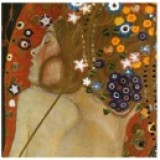What is experience?
-
TSI25
13 years agoWhy do we experience sensations such as color and feeling, rather than perceiving a set of scientific factors about something? for instance, why are tomatoes red and not wavelength .<whatever that wavelength is> and frequency<whatever that frequency is>
-
Michael D Nalley
13 years agoWe are indeed members of the animal kingdom. and creationist and evolutionist alike seem to believe that man gave names to the animals and virtually all other beings. The pyramids seem to suggest that civilized man has a square root in other symmetrical shapes and the original offering to intelligent design may have included natural colors that were discovered my man but not created by man. Many evolutionist are offended by the adjective random or accidental preceding evolution as I am of blind preceding faith . Many eggs are not perfect spheres. Our eyes seem to refract and reflect light that we discovered and did not create
Therefore the creation of a creator defies any intelligent design of an egocentric mind that rejecst any supreme being , Rainbows are indeed myths in the sense that creatures are inclined to search for purpose in the heavens and stars . The sciences evolved in the pursuit of control of our own destiny in much the same way as any religious myth yet all myths are rooted in reality. The only constant is the laws of the universe which like time has lines and colors not easily measured.
If the supreme being is to be discovered and not be created our creator would be more of an artist than scientist I enjoyed listening to this song while still believing we are a work in progress
http://youtu.be/v-86VTOuZWQ -
sibyllene
13 years ago"My body is the fabric into which all objects are woven, and it is, at least in relation to the perceived world, the general instrument of my 'comprehension.'"
- Maurice Merleau-Ponty, The Phenomenology of Perception.
We don't seem to perceive in shreds of data, we seem to be more wholly experiential. We perceive objects as entire, and as connected to the vast, connected context of their surroundings. As for why... who knows? Why wouldn't we? We can more completely conceive of things when they are structured as such. Maybe it's because we have that same experience with our physical bodies. -
Michael D Nalley
13 years agoThe Total Solar Irradiance upon Earth is only a fraction of a TOE Theory Of Everything
In the end splitting Atoms is dangerous, but can also be constructive
Color is an effect and not a cause
Red
Excitement, energy, passion, love, desire, speed, strength, power, heat, aggression, danger, fire, blood, war, violence, all things intense and passionate.
Pink
----------------------------------------------
love and romance, caring, tenderness, acceptance and calm.
Beige and ivory
----------------------------------------------
unification. Ivory symbolizes quiet and pleasantness. Beige symbolizes calm and simplicity.
Yellow
----------------------------------------------
Joy, happiness, betrayal, optimism, idealism, imagination, hope, sunshine, summer, gold, philosophy, dishonesty, cowardice, jealousy, covetousness, deceit, illness, hazard and friendship.
Blue
----------------------------------------------
Peace, tranquility, cold, calm, stability, harmony, unity, trust, truth, confidence, conservatism, security, cleanliness, order, loyalty, sky, water, technology, depression, appetite suppressant.
Turquoise, Teal, Aquamarine, Lighter turquoise
----------------------------------------------
calm, sophistication, water, has a feminine appeal.
Purple
----------------------------------------------
Royalty, nobility, spirituality, ceremony, mysterious, transformation, wisdom, enlightenment, cruelty, arrogance, mourning.
Lavender
----------------------------------------------
femininity, grace and elegance.
Orange
----------------------------------------------
Energy, balance, enthusiasm, warmth, vibrant, expansive, flamboyant, demanding of attention.
Green
----------------------------------------------
Nature, environment, healthy, good luck, renewal, youth, spring, generosity, fertility, jealousy, inexperience, envy, misfortune, vigor.
Brown
----------------------------------------------
Earth, stability, hearth, home, outdoors, reliability, comfort, endurance, simplicity, and comfort.
Grey
---------------------------------------------
Security, reliability, intelligence, staid, modesty, dignity, maturity, solid, conservative, practical, old age, sadness, boring. Silver symbolizes calm.
White
----------------------------------------------
Reverence, purity, birth, simplicity, cleanliness, peace, humility, precision, innocence, youth, winter, snow, good, sterility, marriage (Western cultures), death (Eastern cultures), cold, clinical.
Black
----------------------------------------------
Power, sexuality, sophistication, formality, elegance, wealth, mystery, fear, evil, unhappiness, depth, style, evil, sadness, remorse, anger, anonymity, underground, good technical color, mourning, death (Western cultures). -
Sincuna
13 years agoI think we've somewhat discussed this before, TS, in the Consciousness thread. Because eventually, since experience is a prime element of consciousness, you are also asking, "What is consciousness".
Some evolutionary psychologists would say that this phenomenal feel of experience merely emerges out of survival necessity.
example could be:
a wolf or a dog may have its own olfactory experience to "know" that a certain predator is near. We, as human, have the experience of color to know that a certain flower is poisonous. Etc.
But it is true, like you said, that we can actually take account survival in the basis of some kind of data, like instead of "experiencing" color, we just see wavelengths and such and find out, "ah, this plant has wavelength 54, its poisonous!". But it doesn't take away the fact that we indeed experience something. I'm just not so sure if what I experience inidividually is the same as what you, or any other person in this world experiences when we all perceive the same specific thing.
Actually, even such data or intentional states may bring forth an subjective experience as well. Like what Searle once said, "if you think 2+2 has no subjective feel, try thinking it in german" - so even if we merely just see or perceive data, we would also end up having different kinds of experiences perceiving such data.
Tim Crane asked, as an extension of the topic, this question:
To what extent do our beliefs about the world affect what we see? Our beliefs certainly affect where we choose to look, but do they affect what we see when we look there?
--
Mike, I think what you offered up there^ are symbolisms of color. Its not a necessity since we can also imagine a world where the sky is green, and trees were blue. -
Michael D Nalley
13 years ago"Mike, I think what you offered up there^ are symbolisms of color. Its not a necessity since we can also imagine a world where the sky is green, and trees were blue."
I was born in the blue grass State where they drink so much moonshine they sing songs like blue moon of Kentucky keep on shinning . The wave of or frequency of light reflected off the knobs are easily distinguished from the sky. Try doing a complex math problem with roman numerals and you will appreciate the art of Arab science over Greek mythology though many ancient Geeks seemed to have a better understanding of how a atom resembled a solar system
http://youtu.be/dsyFHhDbyPU -
-
Michael D Nalley
13 years agoAmen to that
I see said the blind builder and he picked up his hammer and saw -
TSI25
13 years agoIn a way the world does revolve around our perception though....
rather the way we can perceive and understand the world revolves around how we perceive it. if, in no way can we detect something, we judge it to be non existent.
i would say our perception is a race wide bias through which we understand the universe, but its a bias that pretty much all human beings share fundamentally so its not like anyone is there to correct the human race (assuming we are wrong which in our reference frame i suppose is not possible unless something drastic changes and we gain additional methods of perceiving space time) -
Michael D Nalley
13 years agoI believe it is not only possible but probable that our brains are still evolving
I use the pronoun "our" in a generational sense
"we"= work in progress
The space time continuum has never been and will never be limited by what is perceived
There are still references to the heliocentric theory even though one would have to be a complete idiot not to accept as fact that the sun is the center of our solar system and what we perceive as night is only a large shadow cast our planet. I don't need to explain that the star we all depend on is not comparatively large but is large enough to produce all the spectrums of light not to mention warmth necessary for any beings experience of environment that could not exist as we know it without countless variables -
Sincuna
13 years agoTS: Yes, I was talking about our bias, as you said in your last paragraph. So in a way, too, the world doesn't complete revolve around our perception.
world: not solely from our point of view but as a whole.
The world doesn't just disappear if all human beings die. But yes, we are pretty much biased with our perception and there's nothing wrong with that. Its what Dennett calls our Intentional stance:
We adopt the intentional stance in predicting human behaviors when we attribute mental states to humans only because we cannot yet adopt the physical stance-- because we do not know much yet about the physical laws governing human behaviors.
But we predict the behaviours of things around us because it is an integral part of our survival mechanism.
Pain is actually C-Fiber stimulation in the brain. Now some animals may actually behave as if its in pain (wincing and crying, alike us humans) yet not actually have C-Fibers in the brain. Now do you think they are in pain?
Maybe so, but not the same human pain that we feel. Or maybe not, maybe their reaction is just a reflex of the body... -
TSI25
13 years agoBut its all frame of reference.
if there are no humans then, (in a way) the earth does cease to exist. to us the earth only exists as we perceive it, and if we did not perceive it, then it would not exist to us. in its own reference frame, the earth would exist in relation to itself, but not in relation to us.
reference frames other than our own are irrelevant if we are analyzing how we perceive? on a similar note, wouldnt our perception of how other things perceive us be based on how we perceive them perceiving us? -
Michael D Nalley
13 years ago"Collective consciousness was a term coined by the French sociologist mile Durkheim (1858-1917) to refer to the shared beliefs and moral attitudes which operate as a unifying force within society.[1] One might recommend collective conscience as a superior translation of Durkheim's concept, in part due to the busy association of the word "consciousness" with both Marxist and Freudian thought, but also as "a conscience for Durkheim is pre-eminently the organ of sentiments and representations; it is not the rational organ that the term consciousness would imply."
I don't know much about color blindness, but I do know if a person cannot tell red from green it is more about ignorance than willingly disobeying the traffic laws that can prevent fatalities
Some species of kingsnake, such as the Scarlet Kingsnake, have coloration and patterning which can cause them to be confused with the venomous coral snakes. There are mnemonic rhymes to help people distinguish between the coral snake and its non-venomous look-alikes, including "Red and yellow kills a fellow. Red and black is safe for Jack."
I have also heard it is good to avoid eating yellow snow
Also the reward and punishment works well in training dogs, but I prefer rewarding good behavior over making an animal uncomfortable -
Kiko
13 years ago"Why do we experience sensations such as color and feeling, rather than perceiving a set of scientific factors about something? for instance, why are tomatoes red and not wavelength .<whatever that wavelength is> and frequency<whatever that frequency is>"
This reminds me of a Dennis Miller routine.
Dennis and his buddy are getting stoned on marijuana, and his buddy asks, "How do I know if the color blue to you is the same as the color blue is for me?" Dennis replies (in a sardonic tone), "Read the goddamn crayola box, okay - you're messin' up my high." -
Sincuna
13 years ago^ lol
"reference frames other than our own are irrelevant if we are analyzing how we perceive? on a similar note, wouldnt our perception of how other things perceive us be based on how we perceive them perceiving us?:
^Yes there aren't irrelevant. I was just giving a reality check. Do you mean "people" instead of "things" in your second question? If so then it seems to be at par with Sartre phenomenology of The Other. He says that to perceive our actual self, we must objectify ourselves, and we cannot do this in any other way other than presenting ourselves to other people like a material object.
We recognize that there are other free consciousnesses that objectify and make judgments about us (The Look). It is the realization of our being-for-others that create our self-identity once we identify that we are being looked at.
"I am responsible for my being-for-others, but I am not the foundation of it." Sartre
- The Other objectifies us to the product of their need. The Other does not create our being but merely sees it and creates a personal interpretation on it. -
Michael D Nalley
13 years agoOn the award boxes, the Platinum looks white, Gold looks yellow, Silver looks blue, Bronze looks pink. Some poets could look at solid platinum award and feel nothing. Humans tend to be more rational about primal emotion than say a bird that was sexually stimulated by a colorful display of feathers in my opinion.
-
TSI25
13 years ago^ lol
"reference frames other than our own are irrelevant if we are analyzing how we perceive? on a similar note, wouldnt our perception of how other things perceive us be based on how we perceive them perceiving us?:
^Yes there aren't irrelevant. I was just giving a reality check. Do you mean "people" instead of "things" in your second question?
no i mean entities outside the human race. -
Michael D Nalley
13 years agoSince I have had no experience with extraterrestrials it may surprise you to know that I believe wasps are very social creatures closely related to ants . If a wasp is guarding a nest their attack seems relatively well planned and most will sacrifice their selves for their young, but rarely use more force than necessary. Wasp are not easily intimidated by lack of attention . I can only imagine how they perceive me but have made deals with them with simple treaties that I ignore once I gain an advantage..
-
Liquid Grace
13 years agoInteresting question:
I was watching a documentary a few years ago and it was about a blind painter. He was able to tell what color someone was by a mere touch. I believe he had been able to see for some time so when he started loosing his sight he started learning how to 'feel colors' I think he may have even made a mechanism that lets him know.
I just found it so interesting how he was able to 'feel' a color. Sorry had to add :D -
TSI25
13 years agoIll put it this way.
lets say that we (as human beings) are the only things that consciously perceive the universe. if we die, than in a way, the universe ceases to be perceived, and ceases to exist...
backing up a little bit, obviously there are other things that perceive the universe such as animals. but in the reference frames of human beings, when all human beings are dead and gone, the universe will cease to exist in the reference frame of human beings. -
Sincuna
13 years ago^ If you put it that way then the obvious answer is yes. Same thing with human conventions like tables, books, pillows, etc. If we disappear, then they are not anymore what we say they are.
Although they can still affect the world regardless of our existence. Take waste for example...
If we disappear, the fishes in the sea wouldn't consider our waste as "waste", but it could gravely affect their survival. -
TSI25
13 years agoI understand that completely, and im not saying that the universe as a whole ends with our absence in it. my questions here are revolving around the limits of perception rather than the limits of the universe
-
Michael D Nalley
13 years ago"For that for the sake of which a thing is, is its principle, and the becoming is for the sake of the end; and the actuality is the end, and it is for the sake of this that the potentiality is acquired. For animals do not see in order that they may have sight, but they have sight that they may see."[27]
In summary, the matter used to make a house has potentiality to be a house and both the activity of building and the form of the final house are actualities, which is also a final cause or end. Then Aristotle proceeds and concludes that the actuality is prior to potentiality in formula, in time and in substantiality.
With this definition of the particular substance (i.e., matter and form), Aristotle tries to solve the problem of the unity of the beings, for example, "what is it that makes a man one"? Since, according to Plato there are two Ideas: animal and biped, how then is man a unity? However, according to Aristotle, the potential being (matter) and the actual one (form) are one and the same thing -
Sincuna
13 years agoKant's noumenon:
"noumenon, plural Noumena, in the philosophy of Immanuel Kant, the thing-in-itself (das Ding an sich) as opposed to what Kant called the phenomenon"the thing as it appears to an observer. Though the noumenal holds the contents of the intelligible world, Kant claimed that man's speculative reason can only know phenomena and can never penetrate to the noumenon. Man, however, is not altogether excluded from the noumenal because practical reason" i.e., the capacity for acting as a moral agent"makes no sense unless a noumenal world is postulated in which freedom, God, and immortality abide.
The relationship of noumenon to phenomenon in Kant's philosophy has engaged philosophers for nearly two centuries, and some have judged his passages on these topics to be irreconcilable. Kant's immediate successors in German Idealism in fact rejected the noumenal as having no existence for man's intelligence. Kant, however, felt that he had precluded this rejection by his refutation of Idealism, and he persisted in defending the absolute reality of the noumenal, arguing that the phenomenal world is an expression of power and that the source from which this power comes can only be the noumenal world beyond. "
reference: http://www.britannica.com/EBchecked/topic/420847/noumenon





